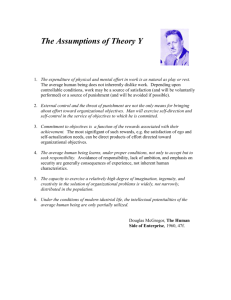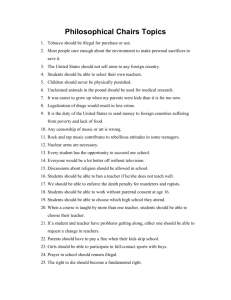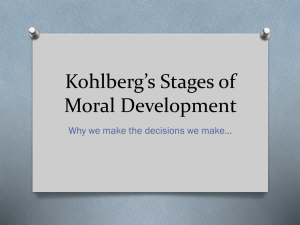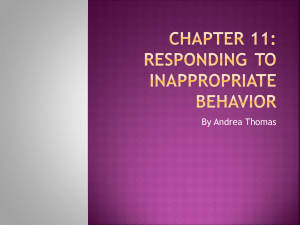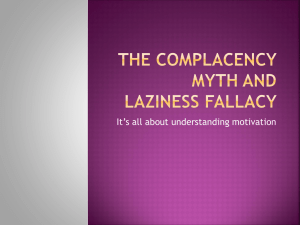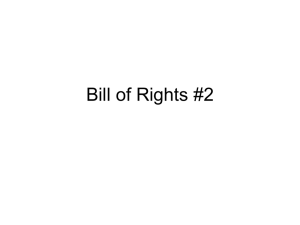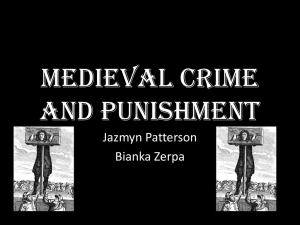rewards and punishment in education
advertisement
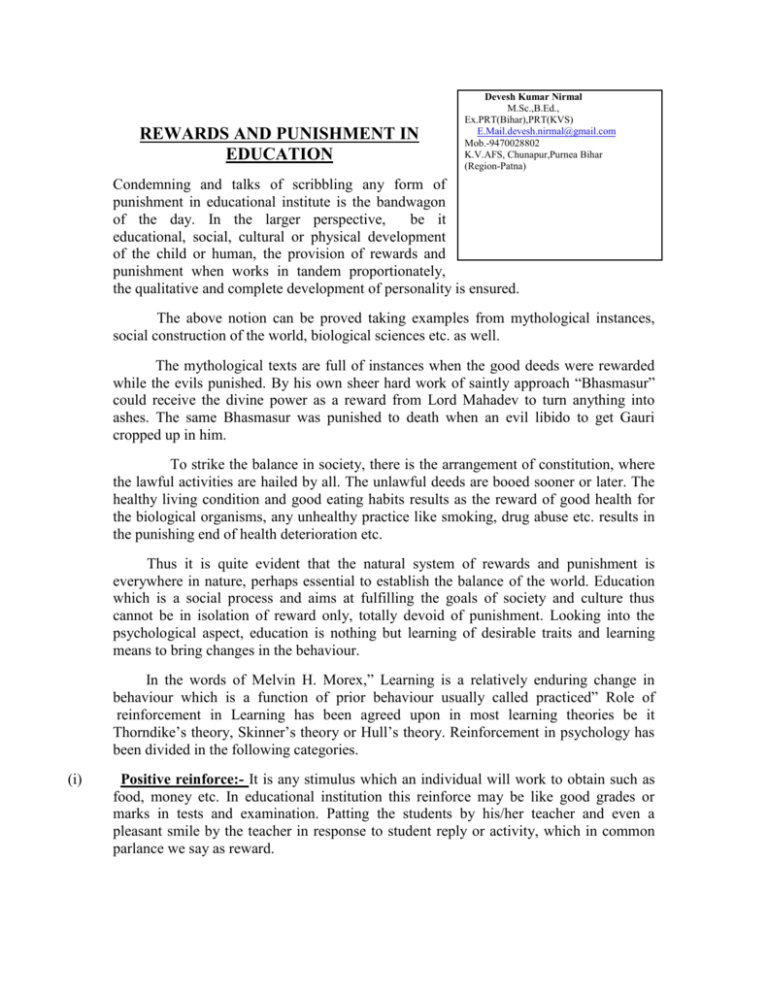
REWARDS AND PUNISHMENT IN EDUCATION Devesh Kumar Nirmal M.Sc.,B.Ed., Ex.PRT(Bihar),PRT(KVS) E.Mail.devesh.nirmal@gmail.com Mob.-9470028802 K.V.AFS, Chunapur,Purnea Bihar (Region-Patna) Condemning and talks of scribbling any form of punishment in educational institute is the bandwagon of the day. In the larger perspective, be it educational, social, cultural or physical development of the child or human, the provision of rewards and punishment when works in tandem proportionately, the qualitative and complete development of personality is ensured. The above notion can be proved taking examples from mythological instances, social construction of the world, biological sciences etc. as well. The mythological texts are full of instances when the good deeds were rewarded while the evils punished. By his own sheer hard work of saintly approach “Bhasmasur” could receive the divine power as a reward from Lord Mahadev to turn anything into ashes. The same Bhasmasur was punished to death when an evil libido to get Gauri cropped up in him. To strike the balance in society, there is the arrangement of constitution, where the lawful activities are hailed by all. The unlawful deeds are booed sooner or later. The healthy living condition and good eating habits results as the reward of good health for the biological organisms, any unhealthy practice like smoking, drug abuse etc. results in the punishing end of health deterioration etc. Thus it is quite evident that the natural system of rewards and punishment is everywhere in nature, perhaps essential to establish the balance of the world. Education which is a social process and aims at fulfilling the goals of society and culture thus cannot be in isolation of reward only, totally devoid of punishment. Looking into the psychological aspect, education is nothing but learning of desirable traits and learning means to bring changes in the behaviour. In the words of Melvin H. Morex,” Learning is a relatively enduring change in behaviour which is a function of prior behaviour usually called practiced” Role of reinforcement in Learning has been agreed upon in most learning theories be it Thorndike’s theory, Skinner’s theory or Hull’s theory. Reinforcement in psychology has been divided in the following categories. (i) Positive reinforce:- It is any stimulus which an individual will work to obtain such as food, money etc. In educational institution this reinforce may be like good grades or marks in tests and examination. Patting the students by his/her teacher and even a pleasant smile by the teacher in response to student reply or activity, which in common parlance we say as reward. A positive reinforce serves to strengthen or maintain the response. These rewards are valuable in students’ development. (ii) Negative reinforce: - Those unpleasant stimulation which the learner will readily terminate if given the opportunity to do so such as social disapproval or condemnation of student by peer group. Suppose engaging in home work is the only means by which a student can terminate the displeasure of his teacher, the student may, over a period of time, learn to terminate the annoying stimulation quickly by engaging in the required task. Contd.:-02 (iii) Punisher:- It is an aversive stimulus which follows a response and frequently serves to suppress it. A negative reinforce precedes the response and forces its occurrence to terminate the unpleasant condition, whereas the punisher follows the response. Thus negative reinforcer and punishment differ in its occurrence time only. Quite evident from the above mythological instances, sociological practices and psychological principles, it can be concluded thus that reward and punishment when applied in proper and balanced measure can only culminate in the balanced development of personality. An education system has to develop a bold and confident citizen of course but if during the developing phases the notion of punishment has not been applied it will lead into the formation of citizen who may be intelligent but may work according to his own whims and fancies without a care for others and thus smash the poor below the wheels of his mighty ear, blasts bombs to kill millions for the pursuit of their own career, religion etc. and thus the balance of entire society and humanity may reach the peril. A child who has never faced punishment in educational institution or at home for his wrong deeds may not understand the value of constitution and thus cannot be a worthy democratic citizen, which the today’s world seeks for. In educational institution thus while rewards should be given to promote the positive traits, punishment in mild form to condemn and check the negative traits. Of course, the intensity, intention and inclination of punishment should be only the overall development of child and not the outburst of frustration, anguish and anger of teacher. A teacher has to be like a gardener who has been entrusted with the responsibility of growing and grooming the flowers. In doing so he has to prepare the soil and manure it and at the same time apply scissors to cut the straying and diseased branches and then only a beautiful garden can develop. A teacher has to be skilled like a potter who of course strikes the brittle pot but always keeps support below to make it beautiful and not to break the pot. Rightly said, Guru Kumhar Shisya Kumbh Hai Garhi Garhi Karhe Khot Andar Hath Samhar De Baahar Mere Chot. ~~~~~~~~~~~~~~~~ Devesh Kumar Nirmal M.Sc.,B.Ed., Ex.PRT(Bihar),PRT(KVS) E.Mail.devesh.nirmal@gmail.com Mob.-9470028802 K.V.AFS, Chunapur,Purnea Bihar (Region-Patna) INTERESTING FACTS #1. Pneumonoultramicroscopicsilicovolcanoconiosis (word composed of 45 letters;Means-Name of disease caused by smelling silicate) #2. Supercalifragilisticexpialidocious (word composed of 35 letters; Means-Very beautiful) #3. Man comes with nothing,Man departs with nothing but man does everything between these two nothing. This page is underconstrcution.
